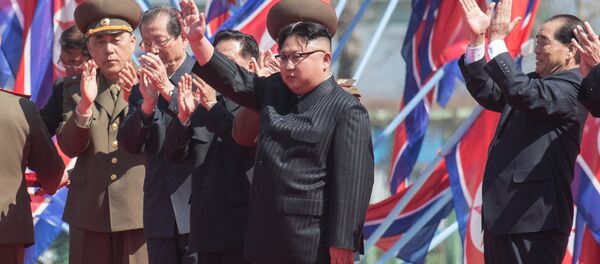GORKI (Russia), (Sputnik) — His comments follow the reported passage on Thursday of a US House of Representatives bill enhancing sanctions against North Korea, outlining "inspection authorities" over Chinese, Iranian, Syrian and Russian ports. The latter include the ports of Nakhodka, Vanino and Vladivostok.
"The United States of America should deal with the affairs of the United States of America. As for our ports, we have quite enough government agencies and supervisory bodies that are able to control the fulfillment of all international obligations that Russia has assumed," Trutnev told reporters.
The chairman of the Russian upper house of parliament's international committee said the bill amounted to a declaration of war.
The situation on the Korean peninsula aggravated in recent months as North Korea carried out a number of missile launches and nuclear tests , which are considered to be in violation of the UN Security Council resolutions.
The most recent missile test allegedly took place on April 29 from a site north of Pyongyang. Japan, South Korea and the United States said the test appeared to have failed as the missile broke-up within North Korean territory.
As a response to the potential use of nuclear weapons, the United States sent a strike group led by US aircraft carrier Carl Vinson to the Korean Peninsula in early April, where it began exercises with the South Korean navy.
US media reported on mid-April that US President Donald Trump might order a strike against North Korea in light of its military activities. The North Korean top officials said the country was ready for nuclear attacks in case of possible US military aggression.
The crisis is aggravated by the deployment of the US THAAD air defense system in South Korea.
The THAAD system has a range of some 200 kilometers (125 miles) and is designed to intercept short, medium and intermediate ballistic missiles at the terminal incoming stage. The move to deploy it in South Korea has been criticized by neighboring China and Russia as inappropriate, possibly disproportionate, and affecting other countries' interests.



